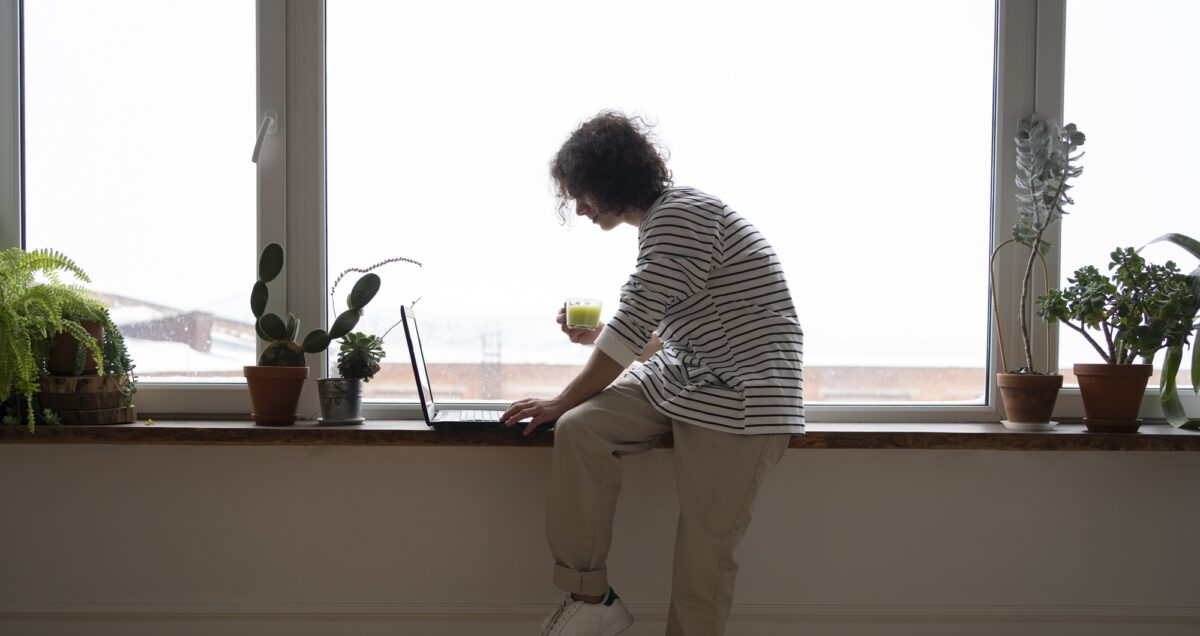In every life we have some trouble
But when you worry you make it double
Don’t worry, be happy
Don’t worry, be happy now
In Bobby McFerrin’s classic song Don’t Worry Be Happy, the common story goes the following way: a negative event has happened, an individual considers the consequences, and then decides to not worry and instead be happy in the moment. It is a catchy song with catchy phrases that stand the test of time. If only being happy during negative circumstances was that easy for everyone.
Well, it turns out that it is not easy, but McFerrin is on the mark. With insights from positive psychology, we explain that work-related wellbeing (i.e., positive affective state of mind) can be improved with gratitude under difficult circumstances including issues surrounding–post-confinement adjustment as people return to work.
Particularly, wellbeing has implications for how we process post-confinement working arrangements following a crisis. Post confinement adjustment is difficult because we cannot live and work the same way as before. At times, it may call attention to the loss of individual and collective liberties that lend toward negative feelings (i.e., grief, anxiety, depression). Yet, when we process these changes in adaptive ways, we are energized to find solutions and to create new possibilities. The exciting thing about wellbeing is that it can be improved within all of us giving us the resilience needed to cope with change that post-confinement measures impose (1).
In more stable times, a report conducted in France in 2018 by Statista Research Department (2), indicated the top 5 most important elements for work-related well-being are: commute time to get to the workplace (72 percent), the quality of space (58 percent), the presence of shops and restaurants around the office (43 percent), accessibility to the workplace by car (42 percent), and accessibility to the workplace by public transportation (35 percent). Interestingly, three of the top five reasons for work-related wellbeing have to do with work-related travel. One may assume that with less travel to and from work that employees will be happier. However, post-confinement measures remove choice. And as the choice is removed, free movement is no longer possible and employees will experience new ways of working (i.e., less international travel, more telework, more within workplace social distancing protocols). Thus, how can wellbeing be maintained or improved in the face of these adjustments?
One specific way to boost work-related well-being is by feeling grateful. In general, gratitude refers to the recognition and appreciation of benefits rendered in life. Implicitly, these benefits are of value and meaning to individuals. Gratitude is a relatively stable outlook, but it is also can be a momentary feeling directed toward social or non-social sources. (3) Robbert Emmons, a leading scholar on gratitude, argues that gratitude can free us from anxiety and becomes particularly effective when practiced regularly. Indeed, daily experiences of gratitude feelings are positively related to wellbeing and even can act as a buffer to daily stressful events that can carry harmful effects for individuals (4).
As we move to new ways of working, it possible to engage in self-applied gratitude activities that activate appreciative thinking that may lead to improved psychological wellbeing. They include:
- Creating a daily gratitude journal where you recognize and express appreciation for elements of your post-confinement day.
- Writing a letter of gratitude once a day to someone at work who has helped you adjust to post-confinement.
- Expressing gratitude toward each day toward others in the workplace recognizing the help that they have given you.
Is all gratitude beneficial? Like all things good, there can be too much, or an inappropriate application. In other words, how we process grateful experiences can also determine our wellbeing. But there is one thing for certain, there is mounting evidence on the benefits of practicing daily gratitude and that short daily activities can increase our happiness – something worth considering as we approach a post-confinement period while balancing new ways of working.
Jennifer Harrison, associate professor in Human Ressources Management at EM Normandie Business School
(1)Fredrickson, B. L., Tugade, M. M., Waugh, C. E., & Larkin, G. R. (2003). What good are positive emotions in crisis? A prospective study of resilience and emotions following the terrorist attacks on the United States on September 11th, 2001. Journal of personality and social psychology, 84(2), 365.
(2) STATISTA. (2018). https://www.statista.com/statistics/1022883/elements-for-well-being-at-work-france/
(3) Emmons, R. A. (2008). Thanks!: How practicing gratitude can make you happier. Houghton Mifflin Harcourt.
(4)Nezlek, J. B., Krejtz, I., Rusanowska, M., & Holas, P. (2019). Within-person relationships among daily gratitude, well-being, stress, and positive experiences. Journal of Happiness Studies, 20(3), 883-898.





